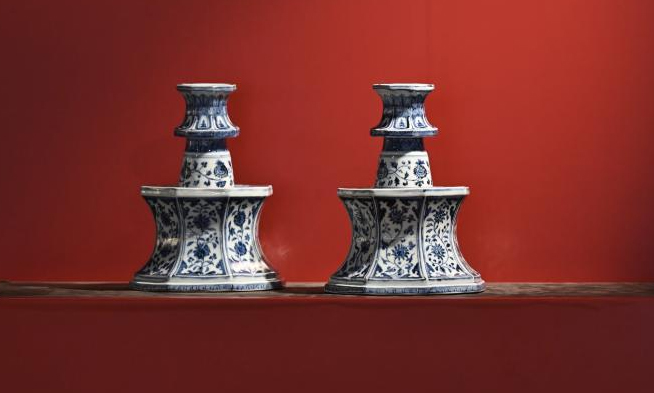Humble street snack rides fresh wave of popularity (2)
An employee of a luosifen maker checks the status of the pickled bamboo shoots, which give a distinctive, tangy aroma to the dish, in Liuzhou, Guangxi Zhuang autonomous region, in June. [CAO YIMING/XINHUA]
Special labels
At least 56 companies in Liuzhou have been certified to use geographical indication labels as part of the increasing importance placed on protecting and promoting the luosifen economy, which has created more than 300,000 jobs, according to industry reports. Geographical indication labels indicate that a product has a specific geographical origin and possesses qualities or a reputation due to that origin.
Liuzhou exported 806.6 metric tons of luosifen packaged noodles from January to April this year-double that of the same period last year, according to Liuzhou customs. In 2021, exports of the product hit a record 52.56 million yuan-an increase of about 80 percent year-on-year, according to customs figures.
In addition to traditional export markets such as the United States, Australia and some European countries, shipments of the ready-to-serve food were also sent to Singapore and New Zealand.
Many local farmers have also lifted themselves out of poverty through production of the rice noodles and other ingredients used in the product.
At the Lyubao vegetable farming cooperative in Dongquan township in the county of Liucheng, visitors are treated to the tangy aromas of bamboo shoots and other pickled ingredients wafting from large jars that are tended by bustling workers.
The community sells about 19,000 kilograms of cowpeas and bamboo shoots a day, bringing sales of more than 90,000 yuan, which adds to the incomes of more than 30 villagers and has lifted at least 23 people out of poverty, said Su Baoguang, the cooperative's chairman.
With the cooperative outgrowing its 5,000-square-meter production site, an investment group has decided to jointly fund an enterprise to provide a new facility, which is scheduled for completion next year, said Zhou Zhi, Party secretary of Dongquan township.
The village has a 10-hectare snail-breeding base, which can produce 185,000kg of snails a year, mostly used to supply the local luosifen sector, and brings in more than 1 million yuan in revenue, Zhou said.
The village's residents also stand to benefit further from convenient transportation links for the industry, Zhou said.
Similarly, in Liyong township of Liuzhou's Yufeng district, construction of a luosifen raw materials production site, which will cover nearly 13.3 hectares, is underway.
Hu Fan, Party secretary of Liyong, said that the site can harvest 1,500 kg of bamboo shoots and 1,250 kg of wild peppers from each farm plot.
"This year we cultivated 400,000 bamboo shoot seedlings and all were sold," Hu said.
Huang Yanzhi invested in a luosifen raw materials processing plant six years ago in Yufeng district.
"I didn't expect the sector to develop so quickly. Our products have been in short supply," he said.
Last year, the factory produced more than 6 million kg of pickled bamboo shoots and cowpeas, involving more than 666 hectares of bamboo shoot farmland and more than 266 hectares used for beans, all of which has helped local farmers increase their income.
"Last year, the scale of the city's luosifen raw materials base was about 36,800 hectares, an increase of 10.4 percent over the previous year," said Qin Yanmei, deputy director of Liuzhou's agriculture and rural affairs bureau. The city also has plans for at least 20 demonstration bases, totaling more than 1,500 hectares, for luosifen raw materials production.
Liuzhou's farming sites for luosifen are expanding in tandem with investments in automation and other technology for the pillar industry.
At Guangxi Meiji Food Technology in Liuzhou's Xinxing Industrial Park, three fully automated and two semi-automated luosifen production lines have helped the company double its capacity to 300,000 packs a day, overcoming what Mo Qinji, the company's chairman, said were manpower constraints in packaging the products.
"In the early days of the epidemic, the 'homebound economy' brought a surge in sales of packaged luosifen, but insufficient workers made it impossible to meet the demand for orders, with waiting time stretching nearly 50 days," Mo said.
Mo studied automation and worked in a construction machinery company in the city, and this experience and expertise helped him develop machinery and equipment for luosifen production.
It took one-and-a-half years, investments of more than 3 million yuan, and six rounds of improvement before he came up with the company's first fully automated production line, which was rolled out in early June last year, he said.
 |  |
Photos
Related Stories
Copyright © 2022 People's Daily Online. All Rights Reserved.











